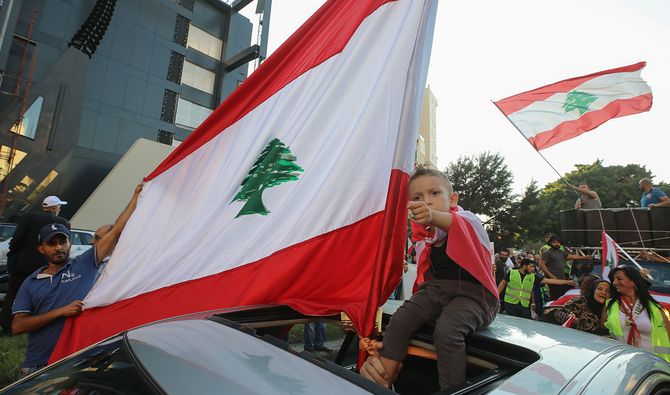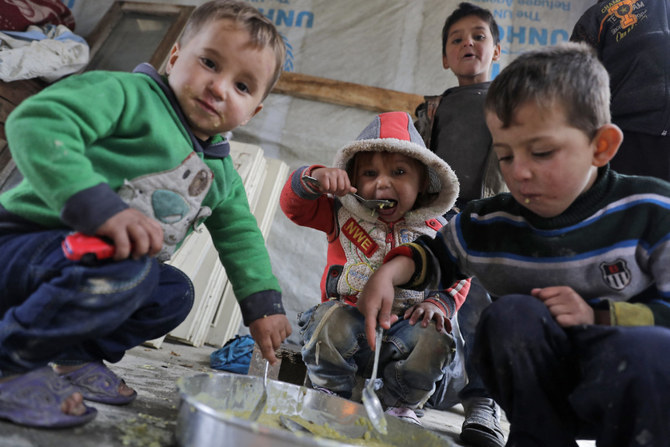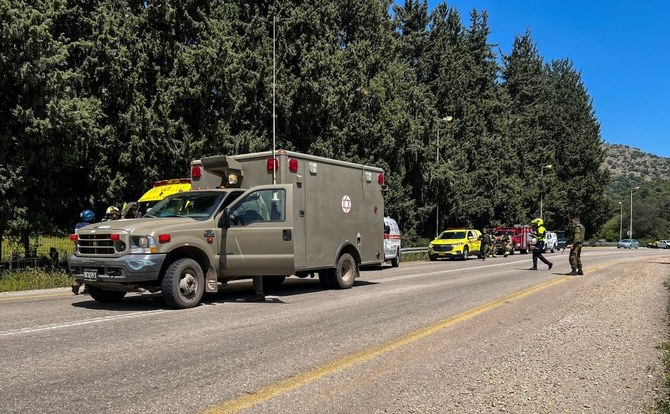BEIRUT: The new Lebanese prime minister to head the next government is expected to be named within two days. Meanwhile, questions are being raised regarding Thursday’s parliamentary consultations, with President Michael Aoun rumored to be considering delaying them for a second time.
Former Prime Minister Saad Hariri is the only name proposed to form the new government, with the two Christian parties — the Free Patriotic Movement (FPM) and the Lebanese Forces — objecting to his nomination.
Richard Kouyoumjian, former minister and serving member of the Lebanese Forces parliamentary bloc, said that his party’s objection does not mean it is refusing to participate in the binding consultations.
“The mere participation of the bloc’s representatives in the parliamentary consultations makes it legal as per the common agreed values and laws, whether or not the bloc names the person who will be assigned to head the new government,” he said.
Kouyoumjian called for “the implementation of the constitution” and said: “Enough bidding in the name of the sect.”
The stance of the Lebanese Forces means the FPM is the only bloc disrupting the parliamentary process.
The Lebanese Forces’ decision not to propose anyone to head the government differed from its position in the two previous parliamentary consultations. In these consultations, the party proposed Ambassador Nawaf Salam.
Future parliamentary bloc member Mohammad Hajjar hoped that the consultations would not be postponed as “it will not be in the interest of the country and the people.”
He told Arab News: “The first postponement was not justified. We said that the French initiative is an opportunity to rescue the country and that it should not be wasted. We said that postponement does not change anything, but rather will be an obstruction that does not benefit the country. We hope to have a prime minister assigned on Thursday by a parliamentary majority.”
On whether he expects a postponement of consultations under new pretexts, Hajjar said: “Maronite Patriarch Bechara Al-Rahi called for the application of the law that does not refer to Christian or regional charters in the assignment process. We say that 22 Christian members of parliament will come to the next parliamentary consultations in the Baabda Palace, and some of them might name Hariri while others might not. Therefore, the consultations must be held so that we proceed to form the government.”
Amid the political ruckus, The Lebanese economic bodies representing the various fields of the private sector have launched a new call for help to save the country.
In a meeting on Monday, the groups called for “the immediate formation of a government that can implement the French initiative.”
The economic bodies warned that “we will reach a stage where there is zero liquidity in hard currencies, the dollar exchange rate will rise uncontrollably, the purchasing power will diminish, and the inflation rate will rise. This means an almost complete closure of institutions, mass unemployment, and societal poverty across all sects.”
The experts highlighted that they had previously warned “of this tragic fate repeatedly, and here we are. On the ground, the structure of the country is collapsing, the economy — with all its components — is deteriorating at record speed, and institutions are breathing their last.”
In a position announced on Monday, the International Monetary Fund projected that “Lebanese economy will see one of the region’s sharpest economic contractions this year at 25 percent.”
The Crisis Observatory at the American University of Beirut estimated the cost of closing the poverty gap in Lebanon in 2020 for those below the minimum poverty line at $838 million.
The group explained that this cost had increased three times since 2019, due to a spike in poverty from 8 percent to 23 percent.






















